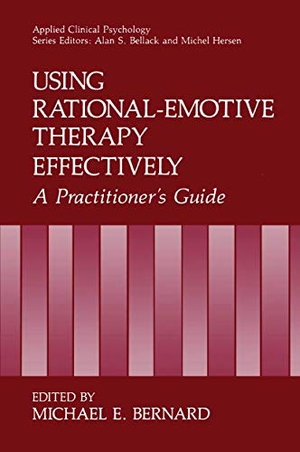Für statistische Zwecke und um bestmögliche Funktionalität zu bieten, speichert diese Website Cookies auf Ihrem Gerät. Das Speichern von Cookies kann in den Browser-Einstellungen deaktiviert werden. Wenn Sie die Website weiter nutzen, stimmen Sie der Verwendung von Cookies zu.
Cookie akzeptieren
Using Rational-Emotive Therapy Effectively
- Springer US
- 1991
- Gebunden
- 372 Seiten
- ISBN 9780306437540
The initial conceptualization of this book was much more narrow than the final product that has emerged. I started out believing that it would be enlightening to have a group of acknowledged rational-emotive therapy (RET) expert practitioners with well-established literary credentials write about how they approach the problem of modifying dient irrationality. Many RET practitioners of all levels of experience are, on the one hand, enamored of the economy, the precision, and the accuracy of psychological insight that RET theory offers, but they are, on the other hand, equally frustrated by their own inability to "persuade" or otherwise change some of the dients they work with
Mehr
Weniger
zzgl. Versand
in Kürze